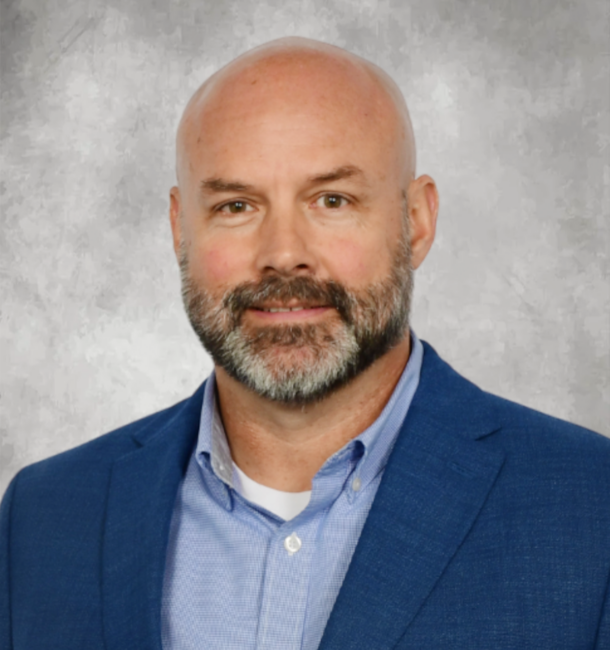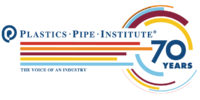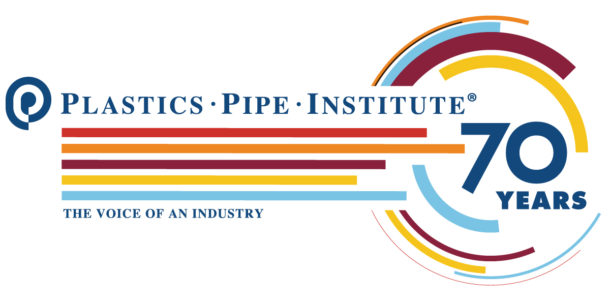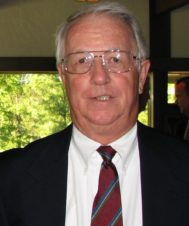The Plastics Pipe Institute, Inc. (PPI) announced today that its Building & Construction Division (BCD) has elected Bill Melvin of Legend Valve (Auburn Hills, MI) as Division Chair and Jim Paschal of Aquatherm (Lindon, UT) as Vice Chair. Melvin, who will also represent the division on the PPI Board of Directors for the next two Read more
PPI

The Plastics Pipe Institute, Inc. (PPI) announced today that its Building & Construction Division (BCD) has elected Bill Melvin of Legend Valve (Auburn Hills, MI) as Division Chair and Jim Paschal of Aquatherm (Lindon, UT) as Vice Chair. Melvin, who will also represent the division on the PPI Board of Directors for the next two years, takes over from Joseph Poniatowski of Asahi/America. The changes took effect June 1, 2024. PPI’s BCD focuses on pressure piping materials for plumbing and mechanical applications.

Jim Paschal (left) of Aquatherm, new Vice Chair and Bill Melvin (right) of Legend Valve new Chair of PPI’s Building & Construction Division with Lance McNevin, the engineering director for the division.
Bill Melvin has served on the Management Committee in several roles, including the Communications Committee Chair and Vice Chair. Jim Paschal also serves as Chair of PPI’s Polypropylene Pressure Pipe Steering Committee and formerly served as R&D Projects Chair. That position will now be filled by Rick Stock of Uponor. Brian Conner of Charlotte Pipe and Foundry joins the committee as Codes & Governments Affairs Committee Liaison.

Rick Stock, Uponor
Adam Grier of iNOEX serves as the Communications Committee Chair, and also as Chair of the PPI Umbrella Marketing Committee. Jason McKinnon of Viega LLC serves as the PPI Education Committee Chair and also as the BCD Education Chair, a position he has held for more than eight years. Forest Hampton III of Lubrizol continues as Advisory Council Liaison & Strategic Planning Chair.
According to Lance MacNevin, P. Eng., director of engineering for PPI’s Building & Construction Division, “PPI’s management committee members provide significant guidance to staff on topics from research, codes and standards to education and advocacy. These new leadership positions solidify their continued commitments to PPI and the piping industry. We are grateful for the volunteer service of these dedicated members.”

Brian Conner, Charlotte Pipe and Foundry
PPI is the major North American trade association representing the plastic pipe industry. The Building & Construction Division represents plastic pressure piping materials such as CPVC, HDPE, PEX, PE-RT, PP-R, and PP-RCT.
More information can be found at https://plasticpipe.org/buildingconstruction
Irving, Texas and Springfield, Ill. — The Plastics Pipe Institute, Inc. (PPI) and the International Ground Source Heat Pump Association (IGSHPA) announced a Memorandum of Understanding (MOU) that will advance the benefits that both organizations provide to the geothermal exchange industry. David Fink, president, PPI and Jeff Hammond, executive director IGSHPA, made the joint announcement Read more
Irving, Texas and Springfield, Ill. — The Plastics Pipe Institute, Inc. (PPI) and the International Ground Source Heat Pump Association (IGSHPA) announced a Memorandum of Understanding (MOU) that will advance the benefits that both organizations provide to the geothermal exchange industry. David Fink, president, PPI and Jeff Hammond, executive director IGSHPA, made the joint announcement virtually from their respective headquarters.
The purpose of the geothermal heat pump industry is to promote a sustainable and decarbonized future across the globe through the adoption of geothermal as the cleanest, most efficient heating and cooling technology.

Established in 1950, PPI is the non-profit North American trade association representing the plastic pipe industry and its members through research, education, technical expertise, and advocacy. Founded in 1987, IGSHPA is a non-profit, member-driven organization established to advance ground source heat pump (GSHP) technology on local, state, national, and international levels.
“For more than 70 years, PPI and our members have focused on the development of plastic pipes and fittings which are the vital connection to the earth and bodies of water for geothermal exchange systems,” Fink stated. “We have always sought ways to work with other like-minded groups to amplify the benefits to the industry. Our work with IGSHPA has been highly rewarding, and we are looking forward to doing even more.”
“This is a very exciting time in the ground source heat pump industry,” said Hammond. “In 2020, IGSHPA became an independent non-profit, no longer part of Oklahoma State University. We see utilities, building owners, governments, and many others recognizing that ground source (geothermal) systems are the best technical solution for reducing energy costs and carbon emissions for heating and cooling buildings. The geothermal industry needs sound technical leadership and guidance and IGSHPA is striving to meet those needs. The collaboration with PPI couldn’t have come at a better time.”
One of the key components of the MOU is technical development, where PPI and IGSHPA agree to foster technical cooperation by providing opportunities to participate in and comment on proposed standards, guidelines, policies, and position statements on technical subjects, encouraging members in each organization to collaborate on technical committees and task forces, and establishing liaison representatives to key technical committees.
Recognizing the important role that research plays in accelerating the transformation to a more sustainable built environment, PPI and IGSHPA also agree to identify and collaborate in the development of projects related to the design and construction of efficient and long-lasting piping systems for geothermal applications. They will also promote research in areas where results will add to the body of knowledge in conservating natural resources, increasing energy efficiencies and sustainability.
“PPI has enjoyed a close relationship with IGSHPA for a number of years,” stated Lance MacNevin, P. Eng., director of engineering for PPI’s Building & Construction Division (BCD). “IGSHPA’s scope of work related to geothermal exchange systems is very much in line with PPI’s scope of work. Since becoming a member of IGSHPA in 2008, I have benefitted from the resources made available to their members and have seen how PPI’s input specifically related to plastic piping materials can assist IGSHPA members. Several PPI member firms are also members of IGSHPA.”
Part of PPI’s mission is to educate the geothermal industry about correct usage of plastic piping materials HDPE, PEX, PE-RT, and PP. “It is important that geothermal engineers have access to accurate information about these pipe materials. There are ideal applications for each of these materials, when utilized correctly,” MacNevin said. “The MOU with IGSHPA will help to accelerate our goal to deliver accurate and thorough information about these systems, so that the best pipe material can be selected for each application.”
MacNevin said that within his division, the Geothermal Steering Committee focuses on specific industry-related issues. “This group is dedicated just to the geothermal industry that includes helping to update standards and codes. Plus, it publishes documents about the use of plastic piping systems for geothermal applications, and serves as a technical resource for geothermal system designers, with regards to plastic piping technologies.”
Other areas addressed in the MOU include advocacy and publications. In addition to the recent MOU, each organization maintains official membership in the other.
“This Memorandum is certainly very exciting,” MacNevin said. “It clearly defines our goals, outlines the initiatives, and sums up the strong support structure of why and how we have forged this agreement. The collaborative work of IGSHPA and PPI members, based on their years of experience and knowledge, is intended to benefit the geothermal community and, ultimately, the public.”
“The wealth of knowledge contained in both of our organizations is second to none,” Hammond said. “So, we are looking forward to expanding our relationship with PPI to help increase the technical knowledge of the industry.”.
Additional information can be found at https://plasticpipe.org/buildingconstruction or at www.IGSHPA.org/

The Plastics Pipe Institute, Inc. (PPI) is celebrating its 70th year. Formed in 1950 as the Thermoplastic Pipe Division of the Society of the Plastics Industry (SPI), PPI is now the leading North American trade association representing all segments of the plastic pipe industry, and is known for its research, its work to develop industry Read more
The Plastics Pipe Institute, Inc. (PPI) is celebrating its 70th year. Formed in 1950 as the Thermoplastic Pipe Division of the Society of the Plastics Industry (SPI), PPI is now the leading North American trade association representing all segments of the plastic pipe industry, and is known for its research, its work to develop industry standards and codes, advocacy and education.

“Since the very beginning, PPI has provided the vision and the leadership that has produced the establishment of uniform test and design criteria that became the foundation for all current applications of plastics piping,” stated PPI President David Fink.

PPI President David Fink
“PPI created the methodology for rating the long-term strength of pipe materials plus the concepts of pipe pressure rating, the establishment of standard dimensional ratios and the adoption of numbers to state those properties. Our association staff and members also engineered the first code acceptances for plumbing, industrial, commercial and gas distribution applications for plastics piping, and provided the first industry-wide statistics. Today, that work continues and includes telecommunications conduit, corrugated drainage pipe, along with pipe used in potable water, forced main sanitary sewer systems and building and construction projects.”
In 1950, when the group was first formed as the Plastic Pipe Manufacturers Association, plastic pipe was still in its infancy, having been developed during World War II as a way to insulate radar cables. Solid-wall high-density polyethylene (HDPE) pipe began replacing metal pipe in oil- and gas-gathering systems in the late 1950s. In the early 1960s, gas utilities started replacing failing iron pipe with polyethylene (PE) pipe, and because of its successful performance history, 95 percent of all new gas distribution systems installed today use PE pipe. A few years later, corrugated HDPE pipe started to replace clay pipe in agricultural drainage systems. In the late 1980s, large-diameter corrugated HDPE pipe began to replace metal and concrete in storm water culverts. The material has continued to evolve into what is now its third and fourth generation of development, each with improved performance capabilities.
“PPI has always been ‘member-run, member-led,” Fink stated. “The continuing success and growth of our association is a direct result of the enthusiastic work by those members. One indication of how our members view their association can be determined by the many people who have participated for several decades.”

Jim Craig, PPI Lifetime Achievement Award Recipient
Frequently, PPI presents its Lifetime Achievement Award to a member who provided exceptional devotion and dedication to the industry. Jim Craig was honored in 2013 for his 40 years of service to the industry and said, “I am proud to be a lifetime member of PPI. It is a great organization with a super staff to help the members accomplish great gains in the plastic pipe markets. I joined PPI in the 1980s, while working for McElroy Manufacturing in Tulsa, OK. I quickly learned that this organization was great at getting people and organizations together to grow the PE industry in general. We had pipe manufacturers, resin manufacturers, fitting manufacturers, joining manufacturers and distribution organizations take on projects, do testing, and develop technical notes and reports with everyone working together to accomplish our goals.”
“Unfortunately, Jim passed away soon after providing his thoughts about PPI,” explained Fink. “His contributions and devotion to PPI and the industry is his legacy that will always benefit others.”

George Zagorski, PPI Lifetime Member
Another Lifetime Member, George Zagorski, now retired from Blue Diamond Industries (Lexington, KY), offered, “I was a somewhat “reluctant” young volunteer when Blue Diamond first joined PPI some 15 years ago. What I discovered was like-minded professionals, who would debate and cooperate for the betterment of the overall plastic piping industry. Along the way, my voice was always heard and considered. In the end, I’ve developed not only professional relationships, but lifelong friendships.” Zagorski also served on the PPI Board of Directors from 2011 to 2017 as vice chair, chair and past chair plus numerous other committees and task groups.
In 1963, Phillips Petroleum, the company that brought a new manufacturing process to the industry for making HDPE and discovered how to make polypropylene 1951, now another popular pipe resin, and in 1963 established its pipe division, Driscopipe, which is now known as Performance Pipe. Harvey Svetlik, another long-time PPI member who started his career with Phillips Driscopipe and recently retired from PPI-member company Georg Fischer Central Plastics LLC, said, “PPI is the leader in the polyolefin pipe industry specifically and in the plastic pipe industry generally. PPI is not so much about what it has accomplished in the past, as it is about our polyethylene brotherhood and our commitment to future accomplishment.
“We have watched the industry grow from using 80 million pounds in 1980 to almost a couple of billion pounds annually for all its applications and all its pipe types. The next 40 years will witness a doubling yet again, as polyethylene pipes and fittings take their place as a dominant leak-free system in the drinking water sector. The North American population will double in this timeframe, creating the demand, along with the need to replace half of existing water distribution pipes due to their deterioration. PPI has led and will lead the market in plastic pipe technology, standards, and associations.” Svetlik received his PPI Lifetime Membership in 2019.
In 1975 the Corrugated Polyethylene Tubing Association was created. Later known as the Corrugated Polyethylene Pipe Association it became the Drainage Division of PPI in 2019. It focuses on the use of corrugated pipe that can be found up to 60 inches in diameter for stormwater and gravity sewer systems. “The members of this division are some of the largest users in the United States of recycled plastic,” Fink said. “One company processes more than 550 million pounds of post-consumer recycled plastics for its pipe products. Keeping this large amount of material out of landfills is possible because of the growing demand for this type of pipe.”

PPI bestowed an Honorary Lifetime Membership to James Goddard, P.E.
In 2011, PPI bestowed an Honorary Lifetime Membership on Drainage Division member James Goddard, P.E. recognizing his more than 30 years of contributions and industry innovations. Goddard retired from Advanced Drainage Systems, Inc. (ADS) as the company’s Chief Engineer.
“Now with a uniform, consistent voice, PPI and specifically the Drainage Division, can go out to federal agencies such as the U. S. Department of Transportation, EPA, Army Corps of Engineers, and others plus state agencies, such as Departments of Transportation, as well as significant organizations such as AASHTO with a common voice technically and that has helped the industry to grow and prosper and has significantly benefited our nation.”
Fink and his organization foresee increased use for plastic pipe. “The trend to create more applications along with enhanced grades of resin and even new resins continues to accelerate at a rapid rate,” he stated. “And we fully expect this continue for the next 70 years. PPI’s first 70 years has been an exciting journey.”
Additional information can be found at www.plasticpipe.org.

The Plastics Pipe Institute, Inc. (PPI), has published a new recommendation related to the direct connection of plastic piping materials CPVC, PE-RT, PEX, and PP to tankless water heaters. Available on PPI’s website, PPI Recommendation H Direct Connection of Plastic Piping Materials to Tankless Water Heaters for Domestic (i.e. residential) Applications provides clear guidance on Read more
The Plastics Pipe Institute, Inc. (PPI), has published a new recommendation related to the direct connection of plastic piping materials CPVC, PE-RT, PEX, and PP to tankless water heaters.
Available on PPI’s website, PPI Recommendation H Direct Connection of Plastic Piping Materials to Tankless Water Heaters for Domestic (i.e. residential) Applications provides clear guidance on the question of direct connection of these piping materials to tankless water heaters. PPI is the major trade association representing the plastic pipe industry.

“PPI Recommendation H answers questions which plumbers and builders have been asking about whether it is appropriate for plastic pressure pipe materials to connect directly to the cold-water inlet and hot-water outlet of domestic tankless water heaters, without the use of metallic flex connectors. Based on our research, these direct connections are usually acceptable,” explained Lance MacNevin, P. Eng., director of engineering for PPI’s Building & Construction Division.
“To help answer this question, PPI and our members researched Canadian and US model plumbing codes,” he continued, “reviewed the published literature on dozens of tankless water heaters, and confirmed the recommendations of plastic piping system manufacturers. Based on the proven high-temperature capabilities of these piping materials and the relatively consistent water temperature control of modern tankless water heaters, there is no technical reason to prohibit direct connections. Of course, installers must follow local code requirements and the manufacturer installation instructions.”
“As stated in Recommendation H: Piping systems using the materials CPVC, PE-RT, PEX, and PP, which carry a pressure rating of 100 psi at 180°F (690 kPa @ 82°C), and which are intended and certified for hot and cold potable water distribution systems according to industry standards and relevant codes, may be connected directly to tankless water heaters which are intended for domestic (i.e. residential) applications, unless prohibited by local plumbing code or the specific water heater manufacturer.”
According to PPI President David Fink, “The research on this topic was prompted by an inquiry from a major builders group. The rapid development of Recommendation H demonstrates the ability of PPI members to collaborate and respond quickly to industry questions about responsible usage of plastic piping materials.”
Published on PPI’s website directly at recommendation-h-direct-connection-tankless, Recommendation H is one of several PPI documents related to the design and installation of pressure pipe materials for plumbing and mechanical applications, which are all published as a service to the industry. Additional information about PPI’s Building & Construction Division can be found at plasticpipe.org/building-construction/index.html.

The American Society of Plumbing Engineers (ASPE) and the Plastics Pipe Institute, Inc. (PPI) today announced a Memorandum of Understanding (MOU) that will advance the benefits that both organizations provide to the plumbing industry. David Fink, President of PPI, and Billy Smith, FASPE, Executive Director/CEO of ASPE, made the joint announcement virtually from their respective Read more
The American Society of Plumbing Engineers (ASPE) and the Plastics Pipe Institute, Inc. (PPI) today announced a Memorandum of Understanding (MOU) that will advance the benefits that both organizations provide to the plumbing industry. David Fink, President of PPI, and Billy Smith, FASPE, Executive Director/CEO of ASPE, made the joint announcement virtually from their respective headquarters. ASPE is the international organization for professionals skilled in the design, specification, and inspection of plumbing systems. PPI is the leading North American trade association representing all segments of the plastic pipe industry.

“For the past 70 years, PPI and our members have embarked on research projects that have led to the creation of many manuals and standards, and influenced codes,” Fink stated. “We have always sought ways to work with other like-minded groups to amplify the benefits to the industry. Our work with ASPE has been highly rewarding, and we are looking forward to doing even more. For example, we will explore how to best educate legislators on issues important to the members of each organization, plus promote mutually beneficial positions during the development and passage of state and federal legislation.”
One of the key components of the MOU is advocacy. Where mutually beneficial, and to the extent allowed by laws and corporate policies, ASPE and PPI will work together on common public affairs goals and ideologies.
Billy Smith stated, “Being the international organization for professionals skilled in the design, specification, and inspection of plumbing systems, ASPE is dedicated to the advancement of the science of plumbing engineering, to the professional growth and advancement of our members, and to the health, welfare, and safety of the public. Having the opportunity to continue our core goals by collaborating with industry partners through advocacy for the benefit of all is a valuable asset.”

“PPI has enjoyed a close relationship with ASPE for a number of years,” stated Lance MacNevin, P. Eng., Director of Engineering for PPI’s Building & Construction Division (BCD). “ASPE’s scope of work related to plumbing and fire protection systems is very much in line with PPI BCD’s scope of work. Since becoming a professional member of ASPE in 2015, I have benefitted from the resources made available to their members and participated in the ASPE Main Design Standards and Legislative Committees. Also, PPI has been registered with ASPE as a continuing education CEU Provider since 2016. This has helped PPI to connect with plumbing engineers through ASPE conferences and Chapter meetings. I encourage more PPI members to join ASPE.”
Part of PPI’s mission is to educate the plumbing industry about correct applications for plastic pressure piping systems using CPVC, HDPE, PEX, PE-RT, PP-R, and PP-RCT. “It is important that plumbing engineers have access to accurate information about these pipe materials. There are ideal applications for each of these materials when utilized correctly,” MacNevin said. “The MOU with ASPE will help to accelerate our goal to deliver accurate and thorough information about these systems, so that the best pipe material can be selected for an application.”
Other areas addressed in the MOU include education, technical activities, and research.
“This Memorandum is certainly very exciting,” MacNevin continued. “It clearly defines our goals, outlines the initiatives, and sums up the strong support structure of why and how we have forged this agreement. The collaborative work of ASPE and PPI members, based on their years of experience and knowledge, is intended to benefit the plumbing community and the health, safety, and welfare of the public.”
“The wealth of knowledge contained in both of our organizations is second to none, so we are looking forward to expanding our relationship with PPI to help increase the technical knowledge of the industry,” Smith said.
Additional information can be found at plasticpipe.org/building-construction or at aspe.org.
